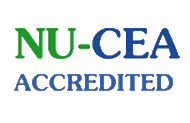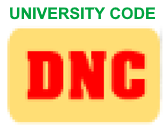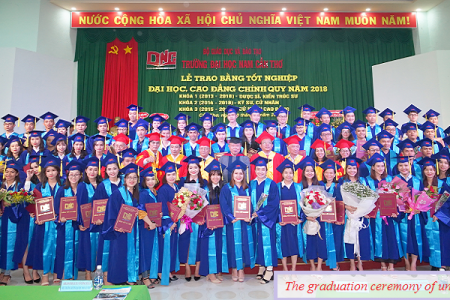Apr 19,2023
Finance and Banking Training Program
Finance and Banking Training Program
|
General Education Courses |
Credit |
|
|||
|
Philosophy |
3 |
|
|||
|
Political Economics |
2 |
|
|||
|
Scientific Socialism |
2 |
|
|||
|
Hồ Chí Minh Ideology |
2 |
|
|||
|
Revolutionary Path of VietNam Communist Party |
2 |
|
|||
|
General State Law |
2 |
|
|||
|
Basic Management |
3 |
|
|||
|
Basic Marketing |
3 |
|
|||
|
Introductory Psychology |
2 |
|
|||
|
General Logic |
2 |
|
|||
|
English |
9 |
|
|||
|
Advanced Mathematics |
3 |
|
|||
|
Basic Informatics |
3 |
|
|||
|
Probability and Statistics |
3 |
|
|||
|
Physical Education |
3 |
|
|||
|
Military Training |
8 |
|
|||
|
|
Foundation courses |
32 |
|||
|
|
1 |
Microeconomics |
3 |
||
|
|
2 |
Macroeconomics |
3 |
||
|
|
3 |
Principles of Accounting |
3 |
||
|
|
4 |
Quantitative Economics |
3 |
||
|
|
5 |
Economic Law |
2 |
||
|
|
6 |
Theory of Finance and Money |
3 |
||
|
|
7 |
International Finance |
3 |
||
|
|
8 |
Financial Market |
3 |
||
|
|
9 |
Principles and Practice of Insurance |
3 |
||
|
|
10 |
Financial Management |
3 |
||
|
|
11 |
Commercial Bank Operations |
3 |
||
|
|
Specialization courses |
24+12 |
|||
|
|
12 |
Central Bank |
2 |
||
|
|
13 |
Bank Marketing |
3 |
||
|
|
14 |
Professional Practice |
2 |
||
|
|
15 |
Credit Appraisal |
3 |
||
|
|
16 |
International Payment |
2 |
||
|
|
17 |
Bank Accounting |
3 |
||
|
|
18 |
Commercial Bank Management |
3 |
||
|
|
19 |
Investment Project Establishment and Appraisal |
3 |
||
|
|
20 |
Financial Risk Management |
3 |
||
|
|
21 |
Investment Portfolio Management |
3 |
||
|
|
22 |
Financial Investment |
3 |
||
|
|
23 |
Financial Statement Analysis |
3 |
||
|
|
24 |
Securities Analysis and Investment |
3 |
||
|
|
Support courses |
13 |
|||
|
|
25 |
Research Methods in Economics |
2 |
||
|
|
26 |
Financial Accounting |
3 |
||
|
|
27 |
Specialized English |
6 |
||
|
|
29 |
Taxation |
2 |
||
|
|
30 |
Internship |
4 |
||
|
|
Graduation Thesis or Replacement Courses |
6 |
|||
|
|
31 |
Graduation thesis |
6 |
||
|
|
32 |
Tax Accounting |
3 |
||
|
|
33 |
Investment Budget Planning |
3 |
||
|
|
34 |
Foreign Exchange Business |
3 |
||
1. Philosophy (3)
The content of this course consists of 4 chapters, studying the laws of motion, general development of nature, society, and thinking; building the worldview, scientific methodology, and revolution, and applying them to scientific cognition and revolutionary practice. This course equips students with scientific methodology, scientific thinking, and the foundation of knowledge about nature, society, and human beings.
2. Political Economics (2)
This course studies the economic theory of Marxism-Leninism on the capitalist mode of production, which not only includes Marx's theory of value and surplus value but also Lenin's economic theory on monopoly capitalism and state monopoly capitalism. The content of these theories covers the most fundamental principles of Marxism-Leninism on the capitalist mode of production.
3. Scientific Socialism (2)
This course equips students with knowledge of social scientific theory, a comprehensive and holistic understanding of socialism, and the content and characteristics of socialist ideology at each stage of development and the transition of humanity to socialism in Vietnam, especially the basic principles of Marxism-Leninism and the ideology of Ho Chi Minh.
4. Ho Chi Minh Ideology (2)
This course consists of 8 chapters, including the basic contents of Ho Chi Minh's ideology. It provides students with a fundamental understanding of Ho Chi Minh's ideology; The foundations of the country-building policy in Vietnam; Applying knowledge to interpret and having a correct attitude towards the people's journey towards socialism in Viet Nam.
5. The revolutionary path of the Communist Party of Vietnam (2)
This subject equips students with the knowledge to analyze fundamental issues related to the formation of the Communist Party of Vietnam and its revolutionary path, including its system of views and policies on objectives, directions, tasks, and solutions for the Vietnamese revolution, as reflected in the Party's guidelines and resolutions throughout the leadership process of the Vietnamese revolution, from the national democratic revolution to the socialist revolution, especially the Party's path during the renewal period in some basic areas of social life.
6. General State Law (2)
This course provides students with basic knowledge about the state and law, introducing some basic legal provisions of legal fields in the legal system of Vietnam.
7. Management (3)
The course provides learners with a basic understanding and knowledge about management, concepts of management, and necessary skills for managers. The course also discusses the history of the emergence and development of management theories and introduces the environmental factors of an organization's activities. In addition, the course also provides learners with the process of communication and management as a foundation for the application and research of subsequent professional subjects in the field of business and economics.
8. Basic Marketing (3)
The course provides students with fundamental knowledge and skills in marketing activities for the business. This course clarifies the main contents including the nature of marketing, marketing environment, marketing information system, and research, target market selection and market positioning, marketing mix tools (7Ps), and international marketing issues.
9. Introductory Psychology (2)
The course provides students with fundamental and systematic knowledge of general psychology, enabling them to develop learning and research skills in psychology, and providing a foundation for further research in other areas of psychology. Students will learn how to apply psychological knowledge to self-improvement, analysis, and interpretation of human psychological phenomena from a scientific perspective.
10. General Logic (2)
The course provides knowledge of basic principles to help learners understand their own and others' thinking and reasoning. It equips learners with skills to identify and refute fallacious arguments, contributing to the protection of justice and truth.
11. Advanced Mathematics (3)
The course provides concepts on Matrices, operations on matrices, row echelon form, the rank of matrices, and matrix inverse; Determinants, methods for calculating determinants, and applications of determinants; Linear systems of equations and solution methods; Functions, limits, continuity, differentiation, and integration; Application of the above knowledge to solve some real-world problems.
12. Computer Fundamentals (3)
This course provides students with basic knowledge about the Windows 7 operating system, Windows Explorer management tool, Vietnamese typing tools in Windows, Microsoft Word (MS Word) text editor, basic operations in MS Word, text formatting, some operations on image objects, table operations, formatting and printing in Word, some advanced features of MS Word. An overview of Microsoft Excel (MS Excel), basic operations of Excel, some basic functions in Excel, basic operations on databases using Excel, creating charts in Excel, formatting, and printing in Excel, some concepts and operations on MS PowerPoint, knowledge of using the Internet and Email.
13. Probability and Statistics (3)
This course provides students with the knowledge to solve problems related to probability theory and mathematical statistics that arise in daily life in general and economics in particular. With the knowledge provided, students can also acquire other subjects such as Econometrics, Statistical Theory, Economic Forecasting, and Marketing...
14. Theory of Finance and Money (3)
This course provides students with knowledge, concepts, and key content on finance, currency, credit, and banking. It serves as a foundation for studying other subjects in the field of economics.
15. International finance (3)
International finance is a specialized subject that focuses on international investment activities, exchange rates, and international financial systems. In general, this subject provides an overview of the economic relationships that arise between countries, governments and foreign citizens, and international organizations and is closely linked to the flows of goods and capital around the world based on certain principles.
16. Financial Markets (3)
Financial Markets is a foundational course that provides a basis for students in the finance industry to familiarize themselves with the operations of financial markets, including the currency market, foreign exchange market, and stock market.
17. Principles and Practices of Insurance (3)
Insurance is a business that is closely linked to insurance companies and is an objectively existing activity in a market economy. The Principles of Insurance course aims to equip students with knowledge and theories about insurance, including how to draft insurance contracts and perform insurance work.
18. Financial Management (3)
This course provides students with basic knowledge of the financial activities of businesses; the theory of risk and return, securities valuation; principles and techniques, and analysis tools to make financial management decisions, especially investment decisions, and management of working capital to achieve the goal of maximizing the value of the enterprise.
19. Commercial Bank Operations (3)
This course provides students with foundational skills and knowledge about banking operations, for students in financial economics who have completed basic knowledge and skills courses. The course allows students to further understand the correlated factors in banking beyond the content of vocational skills and knowledge in the field.
20. Central Bank (2)
This course covers basic knowledge about central banks (concepts, functions, roles, organizational models), central banking operations, monetary policies, internal audits, and control of central banks.
21. Bank Marketing (3)
The objective of this course is to equip students with fundamental knowledge of marketing activities in commercial banks and skills to conduct marketing research and analyze and develop marketing ideas for banks. This course covers general theories of bank marketing, customer behavior research, business environment research, market segmentation, identification of target markets, positioning the bank's brand in the target market, and building, implementing, and evaluating marketing mix strategies.
22. Professional Practice (2)
The course aims to help students utilize the knowledge accumulated throughout their training to conduct scientific research to solve problems in the banking field. Students will use data published on the websites of businesses and attend specialized practical workshops. With the guidance of teachers and speakers in the workshops, students will write a topic in their field or specialization. From there, it creates a foundation for the graduation internship and graduation thesis courses.
23. Credit Appraisal (3)
The course provides students with the basic knowledge and tools to control and manage credit risks in lending activities at commercial banks, contributing to improving the overall effectiveness of credit operations.
24. International Payment (2)
International payment is a specialized field of study that provides knowledge and skills related to international payment in commercial banks and businesses operating in foreign trade. This course covers knowledge about international trade contracts, international commercial terms, documents, and payment methods. In this course, students also practice skills such as verifying and signing documents, applying appropriate conditions, and international payment methods.
25. Bank Accounting (3)
The subject of bank accounting focuses on introducing the content and methods of accounting for economic transactions that occur in commercial banks in Vietnam and Vietnamese credit institutions in general. The content of the course not only provides knowledge about accounting in the banking sector but also helps students review all business transactions of the bank. Based on the accounting transactions, related parties such as administrators, tax authorities, and shareholders... can control the bank's capital and assets as well as the effectiveness of business operations and profit distribution within the bank
26. Commercial Bank Management (3)
The objective of this course is to develop the learner's ability to analyze, evaluate, and make managerial decisions regarding the operational fields of commercial banks. This course covers the following topics: Asset-Liability Management (ALM); reserve and liquidity management; loan portfolio management; investment portfolio management; operational and market risk management; management of deposit and non-deposit sources of funds; and management of the bank's equity capital.
27. Setting and Evaluation of Investment Projects (3)
This course will help students grasp the basic theories of investment projects, the necessary contents for establishing and evaluating investment projects, and develop the ability to establish and evaluate investment projects
28. Financial Risk Management (3)
This course covers general issues related to financial management such as the nature and role of financial management, time value of money, stock valuation, and cost of capital, as well as studying important financial ratios calculated from financial statements to serve the orientation and budgeting of financial reports. Additionally, it also examines one of the three most important decisions in financial management, which is the long-term investment decision
29. Managing Investment Portfolio (3)
This course introduces investment theories, including fundamental issues such as risk and return of investment portfolios, the Markowitz model, the single index model, the CAPM model, the APT model, the efficient market hypothesis (EMH) theory, etc. The methods for constructing and managing investment portfolios include the process of constructing investment portfolios, investment portfolio management strategies, stock investment portfolio management methods, bond investment portfolio management methods, and evaluating the performance of investment portfolios. Considerations when constructing investment portfolios for different types of investors, such as individual investors, insurance companies, banks, investment funds, etc. The application of computer science to solve specific problems in investment portfolio management.
30. Financial Investment (3)
The course helps students understand the basic rules of analysis, valuation, and investment decision-making with two main assets, bonds, and common stocks; from the perspective of individual assets as well as portfolios.
31. Financial Statements Analysis (3)
The Financial Statement Analysis module helps learners access and research issues related to the use and analysis of information to help relevant stakeholders (investors, business owners, bankers, etc.) banks and regulatory agencies use the information to properly assess the financial strength, profitability and prospects of an enterprise, through analytical techniques, to make informed and appropriate decisions.
32. Securities Analysis and Investment (3)
This module introduces students to the theory and practice of stock analysis and investment. Securities analysis methods, including fundamental analysis and technical analysis, will be introduced in the module. In addition, students are provided with knowledge of methods of valuing bonds, stocks, and derivatives. The course also focuses on basic concepts and theories of stock selection and portfolio construction such as the concept of risk and return, efficient market theory, portfolio theory, asset pricing models such as capital asset pricing model (CAPM), arbitrage pricing model, multi-index model, etc.
33. Research Methods in Economics (2)
The course is intended to help students gain an understanding of conducting scientific research. The first part of the module presents an overview of scientific research, how to form research problems, and research design in business administration. The next section will focus on research measurements, sampling methods, data collection, and data analysis. Finally, the module introduces how to develop a research proposal and how to write and present a scientific research report in the field of business administration.
34. Financial Accounting (3)
The course equips students with basic to advanced knowledge of business accounting, namely cash accounting, material accounting, tools and equipment, fixed asset accounting, salary accounting, and work organization corporate accounting. With this knowledge, students can easily access accounting knowledge in businesses in many other fields in the study program.
35. Special English for Finance Banking (5)
The English major in Banking and Finance provides students with the knowledge and foreign language skills in the specialized field of Finance and Banking. The content of this module includes a variety of topics chosen in accordance with the major.
36. Tax (2)
The course provides basic knowledge about General Tax Law, with contents about current taxes applied in Vietnam such as import-export tax, excise tax, value-added tax, corporate income tax, personal income tax, environmental protection tax, resource tax, and other taxes.
37. Graduation Internship (4)
The graduate internship module is designed to help students take advantage of the knowledge accumulated during their training to conduct scientific research to solve problems posed in the field of social science. Students will go to graduate internships at businesses, banks, and administrative and non-business units for the period specified by the program. With the guidance of the teacher, students will write a graduation thesis by industry or major. Students submit their graduation thesis to the faculty after finishing the internship.
38. Graduation Thesis (6)
Graduation thesis majoring in Banking and Finance is a scientific research project done to prove that learners have sufficient knowledge and ability to solve a scientific problem in their major to complete the training program. Students will do internships at businesses, banks, and administrative and non-business units for the period specified by the university. With the guidance of the teacher, students will write a graduation thesis related to their major. Students submit their graduation thesis to the faculty after completing the internship.
39. Tax Accounting (2)
The module will introduce and guide students to practice doing exercises on tax declaration and tax accounting at businesses.
40.Investment Capital Budget Planning (3)
Equip learners with knowledge of capital budgeting standards and processes; Evaluate the feasibility of projects or project combinations scientifically and objectively; Recognize the role of capital budget planning in selecting project combinations to help the company grow.
40. Foreign Exchange Business (3)
The module provides the following knowledge: Overview of the foreign exchange market; Exchange rate and factors affecting the exchange rate; Operations in foreign exchange business; Technical analysis and analysis in forecasting exchange rates; Risks in forex trading; Institutional framework conditions in foreign exchange business; Some strategies in forex trading.



